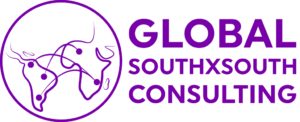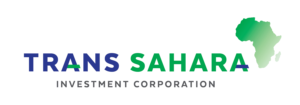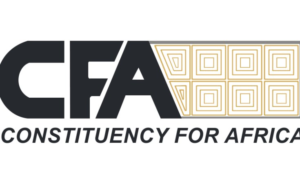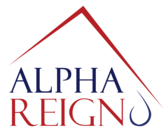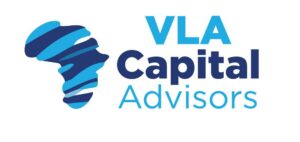The Diaspora with Africa Declaration of Interdependence
January 2021
A Call for Collective Diaspora Engagement with Africa
The year 2020 was one of the most pivotal in modern history. While the COVID-19 global pandemic, economic recession, racial equity and civic protest movements have captured much of the headlines, another less publicized, but equally vital seismic shift occurred – the uptrend in the mobilization of the African Diaspora for two-way investment and trade with Africa. Africa is widely recognized as the last frontier whose untapped potential is significant. Resetting the narrative around its development and economic growth is crucial to its emergence as a leading global economic bloc for generations to come. Investment, trade, technology transfer and talent exchange as the economic rationale for stronger engagement between the Diaspora and Africa demand greater action and structured approaches beyond remittances now. As Diaspora business networks have contributed to the economic transformation of China, India, Ireland, Israel and other countries, so should the African Diaspora have a prominent role in supporting Africa’s prosperity.
Many stakeholders and agendas, both external and internal, are at play on the Continent targeting more dynamic markets and raw materials as well as strengthened physical and social infrastructures through financial assistance, investment, trade and lending mechanisms. As the U.S. and Europe seek to expand their strategic relationship with Africa, the BRIC (Brazil, Russian, India and China) nations are upping their ante on the Continent at a rapid pace, with China, leading the way. From 2000 to 2018, Chinese institutions committed US$150B in loans to Africa and recently pledged to write off the loans of its poorer debtor nations (CNN Business, 2020). The average total in foreign aid between 2015-2017 to African countries from bilateral and multilateral donors was US$27.9B and US$20.7B, respectively (OECD, 2019). In 2018, Prosper Africa was established: a whole-of-government initiative to increase reciprocal U.S.-Africa investment and trade that has mobilized over US$22B and helped close 280 deals. In 2019, the U.S. International Development Finance Corporation (DFC), formerly OPIC, was launched with a commitment of US$60B to lend and increase equity funding to Africa. Despite these commitments, Africa has a funding gap of US$68-$108B per year of the US$130-$170B per year required to meet its infrastructure needs for sustained economic growth (African Development Bank, 2019). Foreign direct investment (FDI) into Africa had dropped 10% in 2019 and the forecasted 25-40% drop in 2020 will exacerbate the dual shock of the coronavirus pandemic and low commodity prices (UNCTAD, 2020). This economic context is an opportunity for creative thought leadership and strategic action for the Diaspora to play a greater role on the Continent.
Therefore, we, as people of Africa and the African Diaspora and our allies, embrace the opportunity to engage for private and public sector investment and trade collaboration. We must be intentional in expanding this involvement to leverage the diversity present within the U.S. and global African Diaspora as well as our economic power. The Diaspora in the U.S. and Brazil comprise nearly 44M and 115M people, which would be the ninth and second largest countries in Africa, with a nominal buying power of about US$1.4T and US$350B, respectively. Targeted economic engagement can help move the Diaspora and African countries from historically being consumers to owners of the means of production. Matching the Diaspora’s emerging potential to Africa’s young demographic, natural resource abundance and rising consumer base, would inextricably link our prosperity.
Therefore, let this be a call to action to mobilize Black America and the global Diaspora to engage Africa through trade, investment, technology transfer, innovation, entrepreneurship, advisory and cultural competency of Africa’s social and business contexts. This will be implemented through the inclusion of a broad-based set of stakeholders, such as investors, consulting firms, small and medium businesses, large corporates, high net-worth individuals, entrepreneurs, educational institutions and scientists. We shall strive in concert to facilitate a prosperous Africa for mutual benefit. We seek deeper partnerships to access essential inputs for increased investment and trade portfolio diversification and brand development, focusing immediately on the sectors of infrastructure, technology, energy, real estate, agriculture, service, healthcare, creative and education. We shall add value to Africa’s economic advancement while closely leaning on values of cultural diplomacy, equity, mutual respect, innovation, to promote sustainable, economic prosperity for Africa and the global African Diaspora.
Declaration
We, the undersigned Diaspora and Africa-led institutions, declare to:
- Work with integrity and ethics to support investment and trade flows bi-directionally between the Diaspora and African markets
- Leverage our networks, access to capital markets and technical expertise to support capital markets development in Africa
- Partner with African and Diaspora-based financial institutions to increase economic self-reliance of people of African descent across the world
- Advocate to reduce the gap in bilateral government and multilateral organization contracts obligated to Black-owned firms, in countries with African Diaspora populations
- Offer creative financing opportunities and other resources to support African and Diaspora entrepreneurial ecosystem development and SME growth
- Achieve the full inclusion of African and Diaspora women in economic commerce and their economic empowerment
- Facilitate the market entry of great African-owned brands in Diaspora host countries
- Eliminate false differences in the nomenclature defining Diaspora and adopt the Africa Union definition as "people of African origin living outside the continent"
- Abandon uninformed thinking and lack of cultural competency in structuring investment and trade deals with African counterparts
- Establish inter-generational linkages between Diaspora and Africa and prioritize significantly reducing youth unemployment
- Forsake imposed and self-generated separation tactics and divisive viewpoints
- Share knowledge and engage in collective thought leadership to devise more creative approaches to address Africa’s great socioeconomic challenges
- Partner with allies of Africa and Diaspora to advance the above-mentioned objectives
